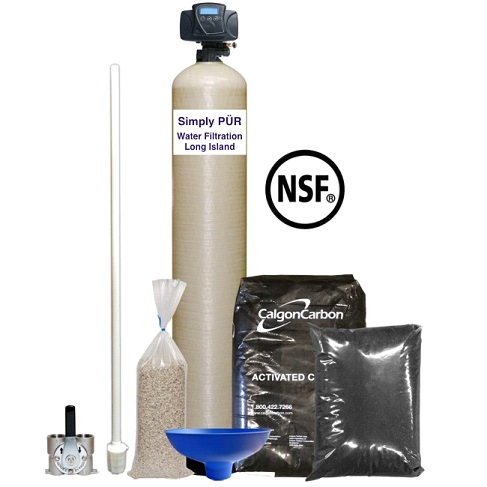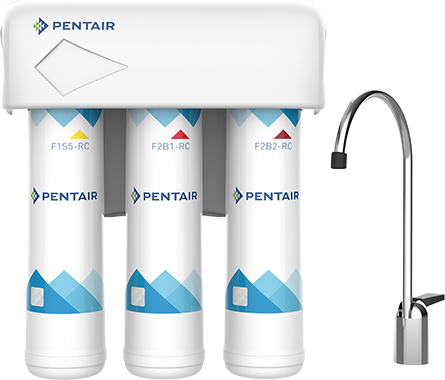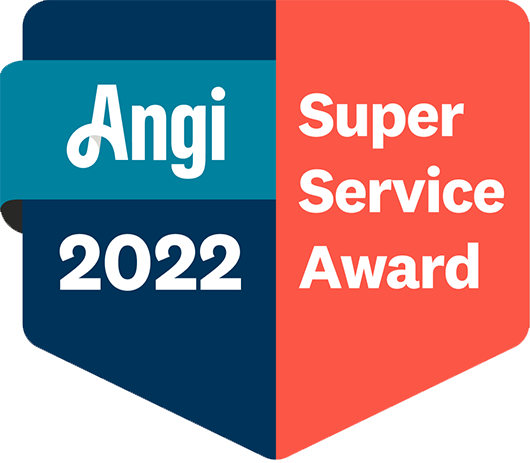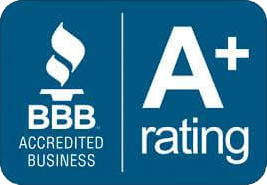Running a restaurant is demanding from staffing and inventory to food quality and marketing. Restaurant owners get caught up with the daily operations and often overlook the importance of water quality. Investing in a commercial water filtration system is not just a luxury; it’s a necessity that can lead to tastier food, satisfied customers, and potentially lower operating costs.
Improving Customer Satisfaction
Today’s customers are more informed and selective than ever. They care deeply about the quality of their food and drinks, including the water used in preparation. Poor water quality can negatively affect the taste of drinks such as coffee, tea, and sodas. Impurities such as chlorine or sediment can give these beverages an unpleasant, bitter aftertaste. Additionally, food cooked or prepared with unfiltered water may lack the desired flavors, which could tarnish a restaurant’s reputation for quality.
Beyond taste, water impurities can affect the visual appeal of drinks and food. Hard water, which contains high levels of minerals, can cause cloudiness in drinks and leave unsightly residue on glassware and utensils. This is especially true in some parts of Long Island, where the water is considered “hard” by the Water Quality Association. For customers, this may create an impression of an unclean or poorly maintained establishment, driving down satisfaction levels.

Prioritizing Health and Safety
Installing a water filtration system isn’t just about taste and appearance—it’s also about protecting customers’ health. Untreated water can harbor harmful contaminants like bacteria, viruses, and heavy metals. Common pathogens such as E. coli or viruses in drinking water can lead to serious illnesses. By investing in a reliable commercial water filtration system, restaurants can safeguard their customers from these risks, ensuring that only clean, safe water is used in food preparation and beverage service. This commitment not only improves customer trust but also demonstrates ethical business practices.
Preventing Legal Liability and Protecting Reputation
In cases where contaminated water causes illness, restaurants can face costly legal repercussions. Lawsuits for medical expenses, lost wages, and damages could be financially devastating for any business. In addition to the direct costs, a waterborne illness outbreak can quickly tarnish a restaurant’s reputation through negative reviews or social media posts, leading to a significant drop in customer visits or even permanent closure.
Reduce Maintenance Costs and Boost Efficiency
Poor water quality can potentially damage your equipment. Hard water, filled with minerals like calcium and magnesium, causes scale buildup in dishwashers, ice machines, and coffee makers. This not only impacts the quality of the food and beverages you serve but also shortens the lifespan of your equipment. Over time, scale buildup leads to inefficiencies, higher energy consumption, and increased repair costs.
A commercial water filtration system softens water and reduces mineral buildup, extending the life of your equipment and reducing maintenance costs. This also translates to lower energy bills, as your machines will run more efficiently with clean water. In an industry where margins are often thin, these cost savings can significantly impact your bottom line.
Types of Commercial Water Filtration Systems
Similar to the options available to any homeowner, there are a number of options for restaurant owners, ranging from simple carbon filters to ultraviolet sterilizers to point-of-use reverse osmosis systems and more expensive whole-facility water treatment and softening systems.
There are several types of commercial water filtration systems available, each designed to address specific water quality concerns. Here are some of the most common types of systems:
Carbon Filters for Long Island Restaurants
Carbon filters are a common type of water filtration system used in restaurants to improve the quality and taste of the water. These filters work by using activated carbon to remove impurities from the water, such as chlorine, sediment, and organic compounds.
Typically installed at the point of use such as under the sink or at the water source for ice machines or coffee makers, carbon filters allow a basic filtering before it is used for cooking, cleaning, or drinking.
Carbon filters come in various sizes and configurations to meet the specific needs of a restaurant. For example, a small restaurant may use a countertop carbon filter for a single sink, while a larger restaurant may require a larger, multi-stage carbon filter system to accommodate multiple sinks, ice machines, and other water sources.
They are also often used in combination with other types of water filtration systems, such as reverse osmosis or UV sterilization systems, to provide more comprehensive water treatment.
Long Island Commercial Reverse Osmosis Systems
Commercial reverse osmosis (RO) systems are a popular type of water filtration system used in restaurants to remove impurities and contaminants from the water. These systems use a semi-permeable membrane to filter out particles and impurities, resulting in clean, purified water. RO is the most effective barrier to salts, micro-contaminants, and organic substances such as viruses and bacteria, making it ideal for applications where high-purity water is needed.
Similar to carbon filters, RO systems are typically installed at the point of use (for a drinking water faucet, coffee machine, or ice machine) but some systems can also be employed at the point of entry for the water supply, such as in the utility room of the restaurant. This allows all of the water used in the restaurant to be filtered before it is used for cooking, cleaning, or drinking.
In larger restaurants, multiple RO systems may be installed to accommodate the high demand for purified water. For example, a large restaurant with multiple kitchens and dining areas may require several RO systems to provide clean water to each area.
Whole-Facility Water Softening and Filtration Systems in Long Island
Water softeners work by using a process called ion exchange to remove the minerals that cause hardness from the water. As water flows through the system, it passes through a resin bed that is charged with sodium ions. The calcium and magnesium ions in the water are attracted to the resin bed and exchanged for sodium ions, effectively removing them from the water.
Water softeners are typically installed at the point of entry for the water supply, such as in the utility room of the restaurant. At Simply PURE Water Filtration, we can install such systems for you. Just contact us for a free consultation. The system is connected to the main water line, and a pre-filter may be installed to remove large particles and sediment from the water before it enters the water softener.
Once installed, the water softener will treat all of the water used in the restaurant, including water used for cooking, cleaning, and drinking, and even improve the water used in restrooms. Removing this calcium and magnesium helps to improve the taste and quality of the water, extend the life of equipment and appliances by reducing the amount of scale buildup and mineral deposits, and softens the water for workers and customers (who use the restroom).
Tailored Filtration Solutions for Your Restaurant
There’s no one-size-fits-all approach when it comes to water filtration. The right solution depends on your specific needs. Smaller establishments might benefit from point-of-use filters for sinks and coffee makers, while larger restaurants may require whole-facility systems to ensure that every faucet, machine, and dish gets clean water. Contact us for a free consultation about any of our commercial water filtration systems today.
About Simply PURE Water Filtration Services
Living in and serving the Long Island community, we strive to make sure everyone has access to clean, healthy water. We have the experience, knowledge, and industry-leading technology to provide clean water solutions for water impurities, contaminants, hard water, bad tasting/odors, well water, acidity & pH regulations.
Proud members of the WQA (Water Quality Association), and the EWQA (Eastern Water Quality Association), we adhere to strict guidelines and the WQA code of ethics. As a Pentair True Blue Partner and Authorized Distributor of Pentair Products, there’s nothing comparable to the performance, and efficiency of our whole house purification systems, water softeners, neutralizers, whole-house filters, and alkaline reverse osmosis systems for drinking in the convenience of your home.


Our products are all NSF / ANSI certified, meeting the highest safety standards and quality performance. Providing our community with only the best experience of high quality water that’s Simply PURE from our family to yours!
Simply PURE utilizes accurate testing methods before and after system installation, as well as annual maintenance of all your water treatment equipment. Our Revolutionary Custom Built Water Treatment systems upon the completion of a Free In-Home Water Analysis, or an in-depth Comprehensive Water Analysis of your choice sent to our Certified Laboratory.




